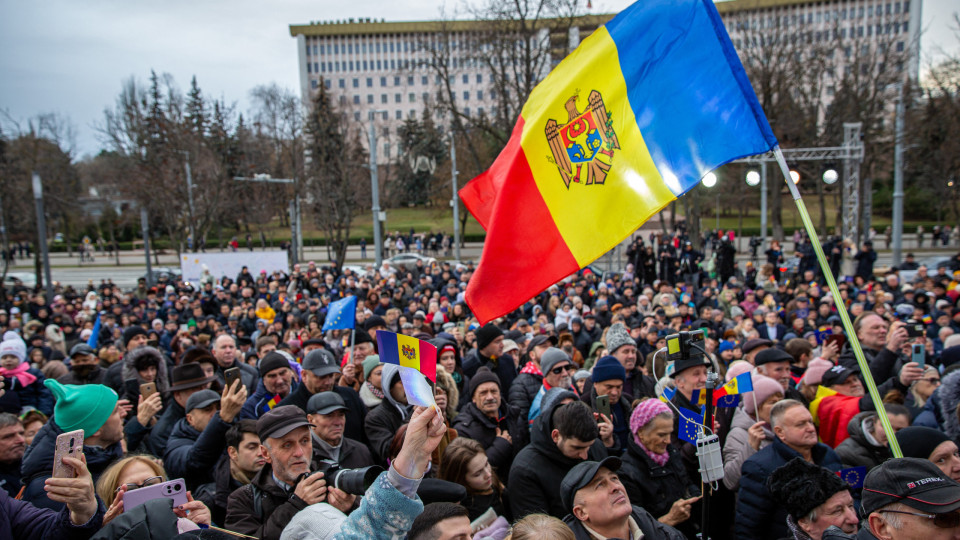Moldova referendum on accession to the European Union on October 20
Moldova's parliament has called a referendum on October 20 on whether the ex-Soviet republic should join the European Union (EU), a move opposed by pro-Russian political parties and the Kremlin-backed separatist region (Russian presidency).

© Elena Covalenco / Getty Images

Mundo Moldova
"The initiative was adopted with the votes of 56 deputies. The referendum was called for October 20," declared Igor Grosu, president of parliament, about the vote, which was broadcast live on the social network Facebook.
The calling of the referendum was possible thanks to the votes of the Party of Action and Solidarity, in power, which holds more than half of the seats in the Moldovan parliament.
Later, the Moldovan deputies also called presidential elections for the same day.
The opposition appealed to the deputies to postpone the decision, arguing that there is no unanimous support for EU membership in Moldovan society.
The communists and socialists considered it premature to hold a referendum, since the country has not yet started accession negotiations with the EU.
In mid-April, the Constitutional Court of Moldova approved the referendum, including in its preamble that "European integration is the strategic objective of Moldova" and "the European identity of the people" of the Republic of Moldova.
"Do you support Moldova's accession to the EU?" will be the question that Moldovans will have to answer.
The President of Moldova, Maia Sandu, pro-European, intends to run for re-election on October 20, when Moldovans will also vote for or against joining the EU.
The rapprochement with the EU began with Sandu's rise to the Presidency in 2020, accelerated with her party's absolute majority in the parliamentary elections the following year, and deepened with Moldova's support for Ukraine since the start of the Russian military intervention in 2022.
Brussels decided in December to open accession negotiations with Moldova and Ukraine.
In addition, in recent years, the Moldovan government has worked to combat Russian influence in local politics and society, banning the pro-Moscow Shor party and restricting the broadcasting of Kremlin propaganda media.
This week, the Moldovan authorities also asked the courts to ban the Chance party for six months, on suspicion of being linked to businessman Ilon Shor, who was today granted Russian citizenship.
The separatists in the Transnistria region and the Gagauzia autonomy, whose leader recently met in Moscow with Kremlin leader Vladimir Putin, reject Sandu's pro-European policies.
With about 2.5 million inhabitants, Moldova is located between Romania and Ukraine.
The Moldovan separatist region of Transnistria gained prominence after the start of the war in Ukraine due to its ties with Russia and its important geostrategic position.
Kyiv even denounced alleged Russian incursions into western Ukraine from the separatist region.
Russia maintains a contingent of 1,500 soldiers in Transnistria, whose pro-Moscow separatists have controlled the territory since the civil war in Moldova in 1992.
Read Also: Moldova resorts to justice to try to ban pro-Russian party (Portuguese version)
Consolidação de crédito: Perdido com vários créditos? Organize-os, juntando todos numa só prestação

Descarregue a nossa App gratuita.
Oitavo ano consecutivo Escolha do Consumidor para Imprensa Online e eleito o produto do ano 2024.
* Estudo da e Netsonda, nov. e dez. 2023 produtodoano- pt.com



